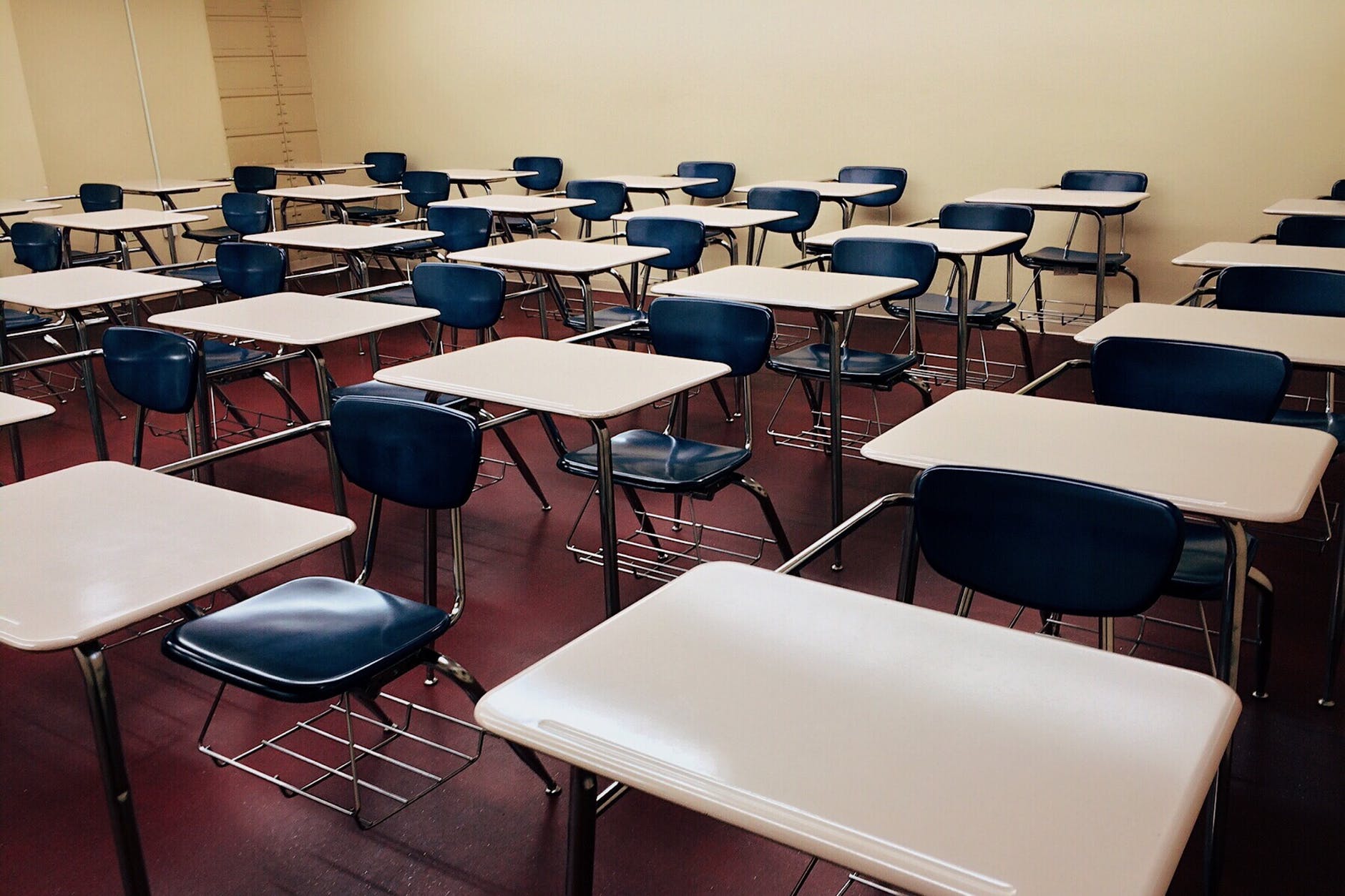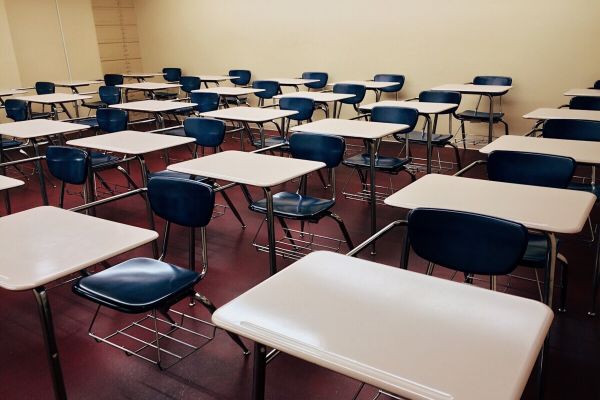As most states and major cities roll back mask mandates and relax a multitude of other COVID safeguards, many breathe a sigh of relief to return to pre-COVID life. But let’s not forget the unintended consequences of closing schools and virtual learning: a significant loss of learning especially for children with disabilities. This makes compensatory education a vital tool in a parents’ toolkit.
Written by Crystal DeVoss Mahany
Many states recognize the loss of learning and put protections in place for parents to request compensatory education for their children. But there’s a catch. The statute of limitations has either passed or the deadline to file a legal complaint is quickly approaching. What happens if parents simply don’t know about the deadline or what compensatory education is? We don’t know what we don’t know and education advocates are furiously trying to spread the word.
What Is Compensatory Education?

Compensatory education (a.k.a. “comp ed”) is educational programming designed to recoup any educational benefit a child lost when special education services were not provided for a period of time. The federal government requires public school districts to provide children with disabilities a free and appropriate public education, or FAPE. If, during the global pandemic of Covid-19, a district does not provide a FAPE to a child, the district must remedy this loss and provide special education services to (literally) compensate for any loss of learning.
The U.S. Department of Education has been really clear that State Education Agencies and Local Education Agencies (school districts) must provide special education services during the pandemic AND must address any loss of learning as a result.
Compensatory education has been defined through several decades of case law. Case law is a judicial opinion of a case, or legal outcome, rendered by a court. When a legal action is filed and both sides argue their case, a judge, or panel of judges depending on the court, then determines and explains how the law will be applied to the facts of the case and renders an opinion. The authority of the court and its resulting opinion has a great deal of influence over similar legal issues that fall under its purview. We use case law to help us determine how a court might rule on a case with similar facts and circumstances. Therefore, in special education, we look to previous cases about comp ed to understand how the opinion of the court is relevant when new situations arise. And COVID-19 was certainly a new situation for all of us!
How Do I Know If My Child Needs Compensatory Education?
Great question. As with all things in special ed, comp ed is based on the individual needs of the child. If your child was receiving specialized reading intervention before schools closed down but didn’t receive that specialized reading intervention during the pandemic, chances are really high they didn’t progress in their reading skills as they would have if the service continued. Comp ed can be used to resolve this deficit and to ensure the child makes meaningful progress according to their IEP. A solution lies in determining the amount of specialized reading intervention your child needs to recoup the loss of progress.
If the district recognizes the loss of learning as a result of not receiving the specialized instruction and develops a plan to mitigate the loss, you’re in a good place! You don’t even need to utter the words “comp ed.” But what if they don’t? What if the school isn’t initiating the discussion as to how they’re going to make up for your child’s loss of services which resulted in a loss of learning? Yes, that will change things. Parents should hope for the best but prepare to show the need and request the extra help.
Let’s be honest – the process of special education is not intuitive. This is hard. Our first job is that of a parent to a child with disabilities (even if you’re a teacher!). Then our job is understanding the needs of our child and meeting those needs with therapeutic and medical services. Tied for second is facilitating their education.
What we know is that comp ed is not an equally measurable source of relief – it’s equitable relief. What does that mean, you ask? Well, quite simply, it means that comp ed is determined according to the individual needs of the child and that should be assessed and awarded on an individual basis.
Here’s an example: my son received zero speech therapy during virtual learning so he essentially lost 16-20 hours of speech therapy allotted by his Individual Education Plan (IEP). If I ask the district for comp ed to make up for that loss of services, that doesn’t exactly mean they should award him 16-20 hours of speech therapy. If more than half of that time was in a small group setting, perhaps I can ask that he receive 1:1 speech therapy sessions for a total of 8 hours. The 8 hours is spread over 4 months which essentially means an additional 2 hours per month or 30 minutes per week. Then it falls to the district to schedule the service times which is in addition to what his current IEP stipulates. This intervention is specific, targeted and a highly individualized service. A total win! Again, the goal is to allow the child the opportunity to achieve what they would have if the loss of services did not occur.
Be Part of the Solution
Parents need to negotiate with districts. Be prepared to get creative. Maybe some kids would benefit from after school services while some would benefit from private tutoring. In law, equitable measures are negotiable. School districts should get creative in the options they offer parents of kids who suffered the loss of special education services. Just like the specialized education that is individualized around the child’s needs, the solution should ultimately be found in the same spirit. Districts should be prepared to staff after-school programs and provide summer or Saturday morning programs.
What we know is teachers are masters at creating educational magic. Districts can develop a brainstorming team to come up with innovative ways to meet these kids’ needs.
An exercise of patience will go a long way. Families and school districts will benefit from exercising patience to get through this process together because even if and when all the restrictions are lifted, the results will be ongoing. We’ve passed the 2-year mark for the effects of COVID on school-aged children. It will take time to augment the effects as we still learn what they are.
School districts cannot simply ignore the education losses that millions of students face but nor should they be crucified for the things beyond their control like staff shortages. States and school districts received large amounts of relief money (like the American Rescue Plan which also provides the Elementary and Secondary School Emergency Relief Fund). Parents should invest in learning what monies their district received and how they’re earmarked to be used. And then advocate for actionable solutions.
What Do I Do About This Deadline?
A state’s looming deadline does not necessarily mean families are out of luck entirely. Parents may request compensatory education any time there is a loss of learning due to districts failing to provide individualized services. If the deadline to file a legal claim for compensatory education as a result of COVID has passed and your child experienced a loss of learning, you can still go through the dispute resolution process. But you *must* read your state’s guidelines about this to know for sure.
Parents (yes, I’m talking directly to you), you need to do some leg work. School board policies are a matter of public record and your state’s law and guidelines will address the process as well. Consult the oracle (google) with a search for state and district records, then use the *control f* option to search the text for “compensatory education” references. Your state or school district may not call it “compensatory education” so again, READ! Figure out the process and begin (or continue) your advocacy journey! Here’s a sample letter [letter link] to personalize and add your own flare to. I suggest you email your letter as an attachment and send it to your child’s case manager, school administrator (principal/vice principal) and district special education coordinator/director.
Fundamentally, parents want their kids to receive the education they deserve which is protected by law. Districts exist to fulfill that job. Both parties rely on each other to do the best for the kiddos.
Filing constraints like the deadlines described in the attached article will stress the administrative system and dispute resolution procedures provided to parents under the IDEA. Not filing could cost children much-needed access to the education promised by the federal government but not received during the pandemic. There is no easy solution but there IS a solution found within the walls of each school board meeting and at the IEP table. Districts should aim to provide solutions that will work for each family. The compromise between parents and districts can be met at the IEP table if both parties come willing to work!
Learn More about Compensatory Education
https://www.wrightslaw.com/covid/2020.0813.COPAA.CompEd.FAQ.pdf
https://www.wrightslaw.com/info/comp.ed.law.htm
https://www2.ed.gov/policy/speced/guid/idea/memosdcltrs/qa-covid-19-03-12-2020.pdf
Here’s links to a couple really important sources of info from the DOE: [https://www2.ed.gov/policy/speced/guid/idea/memosdcltrs/qa-covid-19-03-12-2020.pdf] and here https://sites.ed.gov/idea/files/rts-idea-08-24-2021.pdf . If you need more confirmation that the DOE recognizes the district’s need to identify and provide comp ed, it created a roadmap here https://sites.ed.gov/roadmap/.
Here’s a link about the ARP: https://www2.ed.gov/documents/coronavirus/lost-instructional-time.pdf
About the Author

Crystal works as a Legal Analyst in Special Education Law. A proud wife to an Army Aviator, Crystal has served the military community in many capacities and is committed to serving beyond her soldier’s retirement. She strongly believes in serving military families and the surrounding community at each duty station.
In 2014, her oldest son was diagnosed with Childhood Apraxia of Speech and Autism. Two years later, her youngest son was diagnosed with the same speech disorder. These diagnoses thrust her family into the Special Needs and Special Education community. Driven by her passion to help, Crystal went back to school and focused her research on Disability Rights and Special Education Law. She is deeply committed to continuous service to Special Education families.






The Promise Act’s focus on compensatory education is crucial in addressing the educational disparities faced by marginalized communities. By providing additional resources and support to students who have been historically underserved, we can work towards creating a more equitable education system. Thank you for championing this important cause and advocating for equal opportunities for all students.